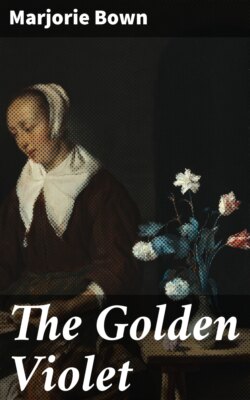Читать книгу The Golden Violet - Marjorie Bown - Страница 4
FOREWORD
ОглавлениеTHE dog that howled at midnight—the debonair Chief Inspector—the thing that crept about the woodshed behind a lonely Connecticut farmhouse—the tough private detective smashing into a stale hotel room—the whimsical criminological vicar in Devonshire—these charming incitements to fear have replaced the lissome young lady and the stalwart lover for popular fictional enjoyment, and the crime—mystery—detective school of fiction has become so portentous an escape from reality that some day, a hundred years hence, even the college professors and the critics will begin to notice it. A bishop or a burlesque queen who does not have a crime story on the bedside table is suspect and perhaps ruined.
The quantity of dreary trash in this school is not surprising. What is surprising is the quantity of authentic literature, shrewd and competent writing with that power of suggesting more than is said, of awakening the emotions and the imagination, that is the sign of literature. We should rejoice that not all inspired authors dwell on the vigorously placid backwoods or the psychological problems of the communistic Modern Woman. Like Dickens and Dostoievsky, a few are also willing to enliven us with the delightful shocks of murder, cruelty to children, and the long hatred between man and woman.
Among the writers who have been willing to devote great talent to the crime story are the wondrous Dorothy Sayers, who wrote The Nine Tailors and Strong Poison, that English journalist A. B. Cox who, under the more shiny names of "Francis Iles" and "Anthony Berkeley," is the enduring author of tales like Malice Aforethought, which in literary geography is a bright island of Corfu.
But neither is more effective than a lady who is not content with being in private life plentitudinously named Mrs. Gabrielle Margaret Vere Campbell Long. She is also in alter ego "Marjorie Bowen" and "George Preedy" and "John Winch" and "Robert Paye" and "Margaret Campbell" and, what is important for us now, that enchanting brewer of dread, "Joseph Shearing."
"Mr. Shearing" had gained a rare adoring school of admirers even before it was revealed that he—she—oh, damn that pronoun —that she was Mrs. Long. With such books as Blanche Fury, The Spider in the Cup, The Angel of the Assassination, Moss Rose, and The Crime of Laura Sarelle, she has given us a new quality of exquisite shivering, of sophisticated naïveté, of dried rose—leaves soaked with blood, of a distinction which can entrance the scholar as well as the roughneck seeking to forget the state of his neck and his ill fortunes.
She loves, particularly, the spectacle of a Victorian lady, frigid and delicately erect, who moves across polished floors and picks up, not the prayer book, the gift of the squire's lady, but a paper knife with which she demurely hastens to do one of the bloodiest, reekingest murders on record.
In The Golden Violet Shearing sets a particularly fragile and priggish specimen of such womanhood, a lady author of verses for Keepsake Albums, against the fire and slaughter of a rebellion of slaves in tropic Jamaica, with a coarsely whiskered husband and a convincing romantic lover for private domestic drama, and a very fine high murder promised toward the end. It is what a high—school girl would call "a grand story." But, as for Max Beerbohm or Arthur Machen—if either of them has read it, I suspect that he has said, with awe and rapture, "It's a grand story!"
Underneath the grand story, underneath the creepiness of a tropic dusk, Mrs. Shearing—Long has a theme which, when you catch it, makes you stir with interested anxiety.
"You were wondering, were you not, what women can do to revenge themselves on men?" says the mulatto slave girl to Angelica; and that very white and conventional and British lady agrees, "Yes, I was thinking that."
Through all the turbulence of the story is this turbulent suggestion of the War Between the Sexes.
Sinclair Lewis
